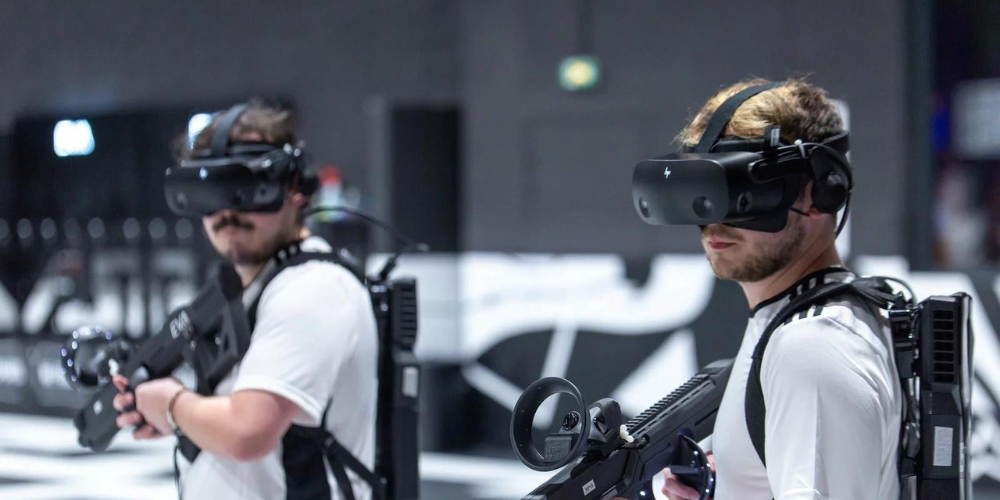How Video Games Influence Real-World Skills and Abilities
- Jul 21, 2024
- 0

Cognitive Flexibility: Adapting to Challenges
Video games, particularly those that are complex and multi-layered, demand a high degree of cognitive flexibility from players. Cognitive flexibility refers to the mental capacity to swiftly adapt one's thinking and behavior in response to changing circumstances or new information. In the context of fast-paced video games, players are constantly required to process new information, anticipate possible outcomes, and make rapid decisions in real-time situations.
This dynamic environment necessitates not only quick reflexes but also strategic thinking and the ability to shift gears mentally without hesitation. Such continuous mental engagement can significantly enhance an individual's ability to think on their feet and respond effectively to unforeseen challenges in real-world scenarios. For instance, in both personal and professional settings, the heightened adaptability cultivated through gaming can be invaluable. In a work environment, this might translate to improved problem-solving skills, better handling of multi-tasking demands, and an increased ability to navigate complex projects under tight deadlines.
On a personal level, these skills can aid in managing everyday stressors and adapting to life's unpredictabilities with greater ease and resilience. Thus, the cognitive and adaptive skills honed through video gaming have the potential to provide substantial benefits in a wide array of contexts, making gamers particularly well-equipped to thrive in our fast-changing world.
Improved Hand-Eye Coordination
One of the most talked-about benefits of gaming is the improvement of hand-eye coordination. Many video games require players to coordinate their visual inputs with hand movements accurately. First-person shooters, racing games, and even puzzle games demand precise timing and movements, training players to develop a fine-tuned sense of coordination. This skill has practical applications, such as in sports, driving, and even professions like surgery, where precise hand movements are crucial.
Enhancing Spatial Awareness
Spatial awareness is another skill amplified by playing video games. Games that involve navigating through complex environments, such as 3D adventure games and platformers, help players understand space and movement in a better way. This improved spatial understanding translates well into real-world tasks that require navigation and awareness, such as driving, architecture, and even everyday tasks like moving furniture or packing.
Boosting Problem-Solving Skills
Many video games revolve around complex problems that need to be solved to progress. These games require critical thinking, planning, and strategy, which can sharpen players’ problem-solving skills. For instance, puzzle games like "Portal" or strategy games like "Civilization" force players to think multiple steps ahead and consider various factors to succeed. These analytical skills are highly transferable to academic endeavors, workplace challenges, and even daily decision-making processes.
Fostering Teamwork and Collaboration
Multiplayer games often require players to work together towards a common goal, promoting teamwork and collaboration. Games like "World of Warcraft" or "Overwatch" necessitate that players communicate effectively, delegate tasks, and support each other to achieve objectives. These collaborative experiences can enhance social skills and make individuals better team players in their professional and personal lives.
Stress Relief and Mental Health Benefits
Video games can also serve as a highly effective form of stress relief, providing an immersive escape that can temporarily transport players away from their daily stressors. Engaging in a captivating game offers not just a distraction but a structured way to achieve goals and experience a sense of accomplishment. This active participation and the subsequent feeling of achievement can significantly mitigate stress, contributing positively to better mental health. Furthermore, games that specifically promote relaxation and calmness, such as "Stardew Valley" or "Animal Crossing," are particularly beneficial in this regard.
These games offer a slower pace of play and a serene environment, allowing players to unwind, relax, and enjoy a therapeutic experience. Through engaging activities like farming, fishing, or decorating, players can find solace and a peaceful reprieve from everyday pressures. This tranquil interaction within the game can have a profound, positive influence on their overall well-being, enhancing their capacity to handle real-life challenges and promoting a happier, more balanced state of mind.
Bottom Line
In conclusion, the profound influence of video games on the enhancement of a diverse array of real-world competencies cannot be overstated. These interactive digital experiences are not merely a source of entertainment but serve as dynamic training grounds for the development of crucial cognitive, perceptual, and social skills. Individuals who engage in gaming activities regularly may find themselves better equipped with improved cognitive flexibility, an essential quality for adapting to new information and environments swiftly. The precise mechanics of gameplay necessitate and refine hand-eye coordination, a skill that is beneficial in numerous everyday tasks and certain professional operations, such as surgery or piloting.
Moreover, the immersive nature of video games is instrumental in bolstering spatial awareness, allowing players to navigate and understand complex spatial relationships with greater ease, which translates effectively into real-world contexts like architecture and engineering. The strategic and often challenging puzzles embedded within the game design are adept at enhancing problem-solving skills, fostering an analytical mindset that can dissect and overcome obstacles efficiently in both personal and professional spheres. In the social dimension, multiplayer and cooperative video games serve as platforms that promote the development of teamwork and communication skills.
Players must often collaborate, delegate responsibilities, and work synchronously to achieve common objectives and experiences that mirror those found in workplace environments, which can lead to increased group cohesion and success in collaboration.